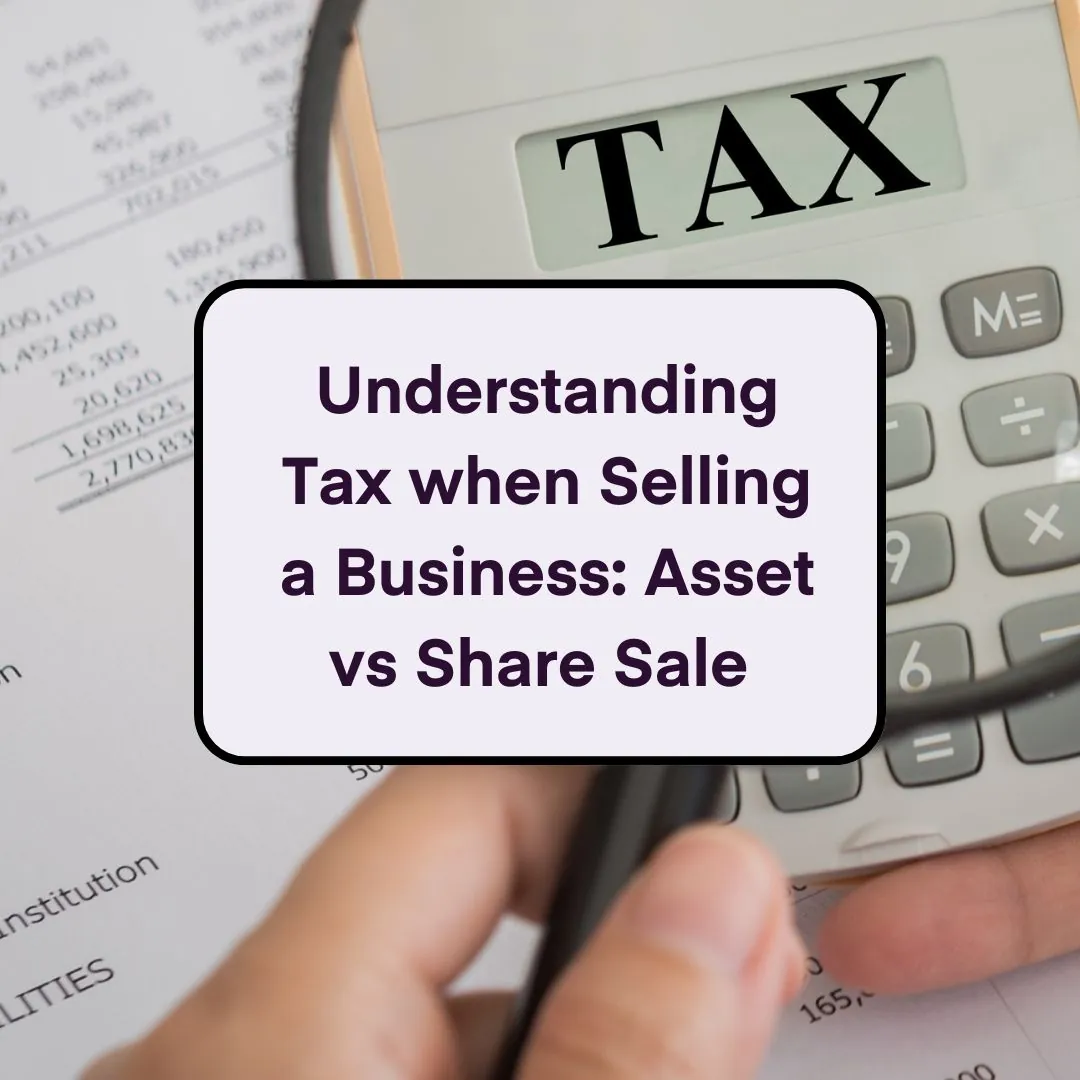
11 Ways to Reduce Corporation Tax
12 Aug 2019As a limited company, your business is liable to pay Corporation Tax on its annual profits. Fortunately, there are many different ways to reduce corporation tax, by being aware of all the different types of tax relief available.
This article provides a brief guide to allowable business expenses you can claim, as well as tax-efficient ways to maximise capital allowances, invest in research or employee benefits, and take money from the business.
However, it’s essential to comply with HMRC guidelines when seeking to reduce Corporation Tax liability, so it may be important to take professional advice to ensure you can maximise savings while remaining compliant.
To support you, we now offer a comprehensive tax health check service designed to help you identify all the potential ways your business could save on taxes. The best part? If we can’t save you tax, our service is free.If your business is currently outside the scope of Corporation Tax, you may consider changing your business structure by incorporating to take advantage of the lower tax rate and a wider range of allowable business expenses.
Pay yourself a tax-efficient remuneration
As the owner or a director of a limited company, you can reduce your Corporation Tax liability by paying yourself a salary which is allowable as a business expense, mix this in with dividends and you’ve got a tax-efficient way of extracting funds from your business.
Any individual in the UK will have access to a personal allowance, which will let you earn the first £12,570 of your salary tax-free. This is why in some instances you'll see business owners pay themselves £12,750 a year. However, the correct balance of salary and dividends can be a complex process, to make sure you're getting the most from your business, book a tax health check today.
Or, you may find it useful to refer to our guide, ‘What is the most tax-efficient way to extract cash from your business.’
Claim all costs of sales
You can reduce your Corporation Tax liability by claiming a wide range of expenses, as long as they are incurred ‘wholly and exclusively’ for your business. Therefore, you won't be able to claim back the sausage and chips you had for lunch (unless it was part of a business trip that was outside your normal work routine).
One of the major categories of allowable expenses is your cost of sales. These include the costs you incur to manufacture or make products for sale.
Typically, these costs would include:
-
Costs of raw materials
-
Operational costs
-
Cost of buying products for resale
-
Product storage, distribution and logistics costs
-
Discounts to retailers, wholesalers and distributors
Claim costs of overheads
Overheads are costs that you have to keep your business running, this is a much wider category of allowable expenses. Generally, these include:
-
Employees wages and salaries
-
Employee benefits, such as pension contributions or bonuses
-
Payments to consultants, contract workers or freelance suppliers
-
Communication costs, including telephone bills and broadband charges
-
Rent and rates for your premises, plus any maintenance or cleaning costs
-
Energy and utility charges
-
Insurance premiums
-
Bank charges, interest and loan repayments
-
Office costs, such as stationery, office supplies and equipment hire
-
Legal, accounting and other professional fees
-
Depreciation for any fixed assets
-
Travel costs, including train fares, fuel and car repayments and maintenance
- Marketing costs to sell the products or service

Claim work-from-home allowances
The pandemic made many businesses recognise the benefits of working from home and as a result, it has now become the norm, whether that's working from home permanently or a ‘hybrid working’ arrangement.
If you only work from home occasionally, the business can pay a fixed allowance set by HMRC. This is currently a maximum of £6 per week or £26 per month. You don’t need approval from HMRC or need to provide evidence of your costs within those limits. However, if you wish to claim more, you must record and retain receipts as evidence.
If you work from home on a regular basis, your costs are likely to exceed the fixed allowance. You must calculate and provide receipts for costs such as heating and lighting, broadband and telephone charges. The claims must be based on a realistic proportion of business and private usage.
There is also an option to set up a rental agreement between yourself and your business. The business pays a realistic commercial rent for the proportion of your property used as a home office. The business can claim Corporation Tax relief on the rent payments. However, you will be liable for Income Tax on the money you earn as rent. Therefore, depending on your corporation and personal tax rates this may not be the best idea, as usually, you'll pay more income tax than corporation tax.
Invest in training and development
If you set up training and development programs, either by paying for external courses or setting up internal training facilities, you can deduct any related expenses from your profit calculations. This type of investment also has important non-tax-related benefits by helping you develop a more skilled workforce.
Set up an employee share scheme
There are many important business benefits in setting up an employee share scheme. With certain types of share schemes, you can also reduce your Corporation Tax liability by claiming the costs of setting up and operating the scheme.
Set up a company pension fund
One of the most important employee benefits is a company pension scheme. Both employees and employers make contributions and your employer contributions are classified as allowable expenses that can be deducted from profits.
Invest in research and development
Investing in research and development (R&D) is essential for the future of your business, but it also offers you valuable Corporation Tax benefits. HMRC allows you to claim tax relief for a wide range of R&D-related costs, including:
-
Assets and materials
-
Overheads related to the research space
-
Licences, copyright and franchising rights
-
Software and software development
-
Research staff, full or partial costs, depending on the proportion of time spent on R&D
-
External research staff
-
Contracted research services
There are also additional forms of R&D tax relief for different sizes of business.
Here's how the pre 2024 R&D system worked.
Businesses employing less than 500 people with a turnover less than 100 million Euros can claim SME R&D relief. This allows you to deduct an extra 130 percent of any qualifying R&D costs from annual profits. That’s in addition to the full 100 percent deduction of R&D costs, giving you a total deduction of 230 percent of costs.
Larger companies above the threshold can claim the Research and Development Expenditure Credit (RDEC) for costs incurred on qualifying R&D projects. Instead of a deduction from profits, businesses receive a tax credit based on 13 percent of qualifying R&D expenditure.
You can claim enhanced R&D intensive support post-April 1st 2024 if you’re an SME with:- Less than 500 staff
- A turnover of under 100 million euros or a balance sheet total of under 86 million euros
- You make a trading loss for tax purposes before relief is calculated
- You meet the R&D intensity condition, with an R&D intensity of at least 30%
Maximise capital allowances
When a business buys equipment like plant or machinery, it can get tax relief through capital allowances. Each year, the business can claim a tax deduction, typically 18% of the asset's value. The value goes down each year, so the tax relief also decreases over time. This helps reduce the amount of Corporation Tax the business has to pay. Cars, vans, and other vehicles used "wholly and exclusively" for the business also qualify for Corporation Tax relief. The rate of allowances for cars varies based on CO2 emissions.
As a limited company, you can also make use of the Annual Investment Allowance (AIA). The AIA provides businesses with 100% tax relief on qualifying plant and machinery investments. As of 1st April 2023, the AIA limit was set to a permanent level of £1 million per year, which means businesses can continue to claim 100% of the acquisition cost of eligible assets within this limit.
Dispose of assets at the right time
Disposing of a business asset that provided capital allowances may make you liable for a Capital Gains Tax charge, increasing your overall tax liability. To reduce the liability, you can choose to dispose of the asset until the following tax year. However, if you make a loss on the disposal of an asset, you can use that to reduce your Corporation Tax bill in the current tax year.
Related: Statement of financial position – Example and guide
Related: How To Read A Company Balance Sheet
Make use of business losses
If your business makes a trading loss, you can carry that loss back a year to claim back tax on previous profits.
For example, in the 24/25 tax year, you made a profit of £10,000 and paid £1,900 tax (at the 19% corporate tax rate), then in the 25/26 tax year you made a loss of £10,000 you can carry that back a year, making your previous 24/25 profit of £10,000 a £0 breakeven. By doing this you will be able to instantly claim back the £1,900 you paid to HMRC last year, providing a vital cash injection into the business.
You can also carry forward this loss and stack it for as many years as you make a loss until you make a profit. However, where you can we recommend carrying it back, as you can only do that to the previous tax year. Additionally, carrying losses back a year can provide the aforementioned, instant cash injection (this normally takes a month or two to be processed).
Related: A guide to Corporation Tax trading losses for business owners
Support from Accounts & Legal
This article has briefly outlined the main areas of your business where you can reduce your Corporation Tax liability. However, if your tax affairs are more complex, you may find it useful to take professional advice. Our team of accountants are highly experienced in personal and business tax issues and can help you to minimise your tax liability.
Looking to get your taxes in order? Book in with our consultants for a tax health check. Save tax or your money back.

























